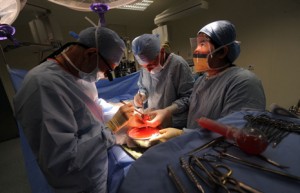Latest study has revealed that women who have undergone kidney transplantation can have a safe and successful pregnancy. Statistics resulting from the study have revealed that the success rate of pregnancies in such women is 73.5%. The study was conducted by a team of researchers from John Hopkins University. The study was led by Dr. Dorry Segev MD, PhD and was published in the American Journal of Transplantation.A thorough study was conducted for a period between 2000 and 2010 considering the success or failure of pregnancy in kidney transplant patients. The study has lead to conclusive proof that women who have undergone transplantation of their kidneys can still go through the pregnancy period and have a healthy delivery.

The babies born from such mothers are healthy as well. However, the study also revealed that the risk of medical complications is high in such cases, which makes it necessary to monitor health of the expecting mother very carefully all through the pregnancy stage. The rate of complications such as gestational diabetes, preterm or premature births and preeclampsia are very high.
It has been found that the time gap between kidney transplant and pregnancy can be a very important factor in influencing the success of pregnancies. Pregnancies that take place within two years of undergoing procedure for kidney transplant run higher risk of facing complications. The rate of complications reduced by almost half when pregnancies happened a couple of years after transplantation process. So, it is good to wait two years at least before planning pregnancies after a woman undergoes kidney transplant.
According to V. T. Armeti from the Thomas Jefferson University said that the risk of miscarriages and other complications cannot be eliminated in women who have had kidney transplants. He said that the risk is very much a part of the entire pregnancy and delivery process. The decision has to be taken by the patient whether or not to have a baby after transplant. However, medical practitioners need to explain dangers and guide patients depending on complications in a woman’s health. The final decision, however, has to be made by the patient.
Segev said that the study could help women take a good decision about undergoing transplantation of the kidneys when they are in the childbearing age. They could also consider the continuing dialysis until after having the baby. The second benefit of the study is that medical practitioners could provide better follow up process in women who have undergone transplant and are pregnant within a couple of years.